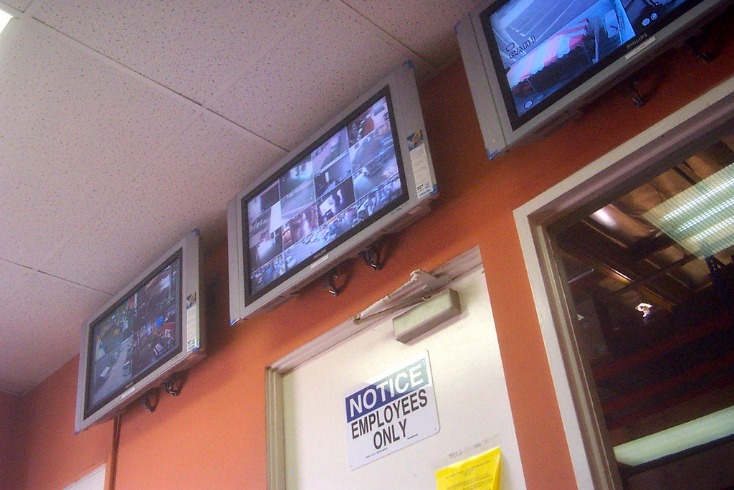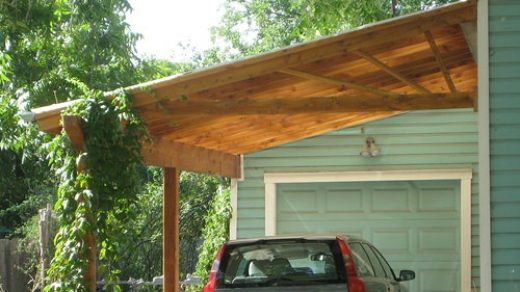Factors Affecting Carport Prices
Several factors influence the overall cost of a carport, making it essential for buyers to understand the key elements that can impact pricing. These factors include the size and design of the carport, the materials used in construction, and any additional features or customizations. By examining these aspects, customers can better estimate their budget and select a carport that meets their needs and financial considerations.
Material Types
Carport prices are influenced by various factors, including the choice of material, size, design, and installation complexity. Material types play a significant role in determining overall costs, as different materials vary in durability, aesthetics, and manufacturing expenses. Common materials for carports include metal, wood, vinyl, and aluminum, each offering distinct advantages and price points. Metal carports tend to be more affordable and durable, while wooden structures provide a customizable and natural appearance but often cost more. Vinyl offers low maintenance and weather resistance, usually at a moderate price. The selection of material directly impacts the initial investment and long-term maintenance costs, shaping the final price of the carport. Additionally, quality, brand, and local market conditions can further influence material prices, contributing to the overall carport cost variation.
Size and Dimensions
Factors affecting carport prices, size, and dimensions play a significant role in determining the overall cost and suitability of a carport for your needs. The size and dimensions are primary considerations, as larger carports require more materials and labor, increasing the price. The height, width, and depth should be tailored to accommodate your vehicle storage requirements, which directly influences the cost. Material choice is another critical factor; options like metal, wood, or vinyl vary in price and durability, impacting both the initial investment and long-term maintenance costs. The design complexity, including features like custom roofing or additional side panels, can also add to the price. Installation location can influence expenses, as difficult terrains or the need for concrete foundations may require extra work and costs. Additionally, regional pricing differences, local labor rates, and permits can affect the final cost. Overall, understanding these factors helps in estimating the budget and choosing a suitable carport that meets your requirements without overspending.
Design and Style
Factors affecting carport prices, design, and style are numerous and can significantly influence the overall cost of your project. Understanding these elements can help you make informed decisions when selecting a carport that fits your budget and aesthetic preferences.
- Materials Used: The type of materials, such as steel, aluminum, wood, or vinyl, greatly impacts the price. High-quality and durable materials tend to be more expensive but offer longer lifespan and better protection.
- Size and Capacity: Larger carports that accommodate multiple vehicles or additional storage space generally cost more due to increased material use and complexity.
- Design Complexity: Custom designs, intricate architectural features, or personalized styles can elevate costs compared to standard, simple structures.
- Style and Aesthetic Details: Modern, minimalist, traditional, or decorative styles influence pricing, especially if detailed craftsmanship or unique finishes are involved.
- Installation Costs: Location, ground conditions, and accessibility can affect installation fees, adding to the overall price.
- Additional Features: Features like sidewalls, automatic opening mechanisms, lighting, or gutters are optional and can increase the total expenditure.
- Building Regulations and Permits: Compliance with local building codes and the need for permits may incur extra costs.
Location and Accessibility
Location and accessibility are significant factors influencing carport prices. Properties situated in urban areas or prime locations tend to have higher costs due to increased demand and real estate value. Additionally, easy access to the site, such as proximity to main roads or lack of obstacles, can reduce installation costs and impact the overall price. Remote or hard-to-reach locations may require additional planning, equipment, or labor, thereby increasing the total expense. Considering these factors can help in estimating the appropriate budget for a carport project.
Installation Complexity
The cost of a carport can vary significantly based on several factors, with installation complexity being a key component. Complex installations involving custom designs, elevated structures, or difficult site access tend to increase labor and material costs. Additionally, the type of material used, such as wood, metal, or polycarbonate, influences the overall price, with more durable and premium materials often costing more. The size and dimensions of the carport also play a role, as larger structures require more materials and labor. Site conditions, including soil stability, slope, and the need for foundation work, further impact installation costs. Lastly, permitting and compliance with local building codes can add to expenses, especially if advanced engineering or special approvals are needed. Overall, careful assessment of these factors helps determine the final price of a carport installation.
Average Cost Ranges

Understanding the average cost ranges for carports is essential when planning your budget for a new structure. Carport prices can vary widely based on factors such as size, material, design, and additional features. By exploring these ranges, homeowners can better estimate their expenses and make informed decisions to suit their needs and financial plans.
Basic Carports
Basic carports typically range in cost depending on factors such as size, materials, and installation requirements. On average, you can expect to pay between $1,000 and $3,000 for a standard, single-car basic carport. These structures usually feature simple designs with metal or wood frames and a basic roof covering. Prices may increase if you opt for larger sizes or higher-quality materials, with double or multi-car carports generally costing between $2,500 and $5,000. Additional costs may include permits, site preparation, and customization options, which can influence the total price. Overall, basic carports offer an affordable and practical solution for protecting your vehicle without extensive expenses.
Mid-Range Carports
Mid-range carports typically offer a balance of durability, style, and affordability, making them a popular choice for many homeowners. The average cost for a mid-range carport usually falls between $1,200 and $3,000, depending on the size, materials, and additional features. Steel and aluminum are common materials used in mid-range options, providing good weather resistance and low maintenance. Customizations such as added storage, integrated lighting, or decorative elements can increase the overall price. It’s important to consider both the initial investment and long-term durability when choosing a carport within this price range.
Premium and Custom Carports
When considering carport prices, it’s important to understand the different cost ranges associated with various options. Average cost ranges for standard carports generally fall between $1,500 and $4,000, depending on size, materials, and features. Premium carports, which often include higher-quality materials, additional design elements, and enhanced durability, typically cost between $4,000 and $8,000. Custom carports, tailored to specific dimensions, styles, and extra features, can range from $8,000 up to $20,000 or more, reflecting the level of customization and quality involved.
Additional Costs to Consider
When budgeting for a carport, many focus on the basic installation costs, but there are several additional expenses to keep in mind. Understanding these potential costs can help prevent surprises and ensure you allocate enough funds for a successful project. From permits to materials, considering all possible expenses will help you make informed decisions about your carport purchase and installation.
Permits and Regulations
When budgeting for a carport, it’s important to consider additional costs beyond the basic construction price. These can include excavation, foundation work, or reinforcing materials that ensure stability and durability. Depending on the location, you may also need to account for drainage systems or electrical wiring if lighting or other features are desired.
Obtaining the necessary permits and adhering to local regulations is another essential step. Building a carport often requires approval from municipal authorities, especially if it exceeds certain size limits or is in a designated zoning area. Permit fees can vary and may involve inspections during and after construction to ensure compliance with safety standards and building codes. Failure to secure proper permits can result in fines or the need to dismantle unauthorized structures, making it vital to research and follow all relevant regulations before starting your project.
Foundation and Groundwork
When estimating the total cost of a carport, it is essential to consider additional expenses related to foundation and groundwork. Proper foundation preparation ensures the stability and longevity of the structure, which can significantly influence overall costs. Depending on the soil condition and site requirements, groundworks may include excavation, leveling, compacting, and installing a concrete slab or other foundation types. These processes can vary in complexity and cost, especially if underlying issues such as uneven terrain or poor soil stability are encountered. In some cases, reinforcement or special foundations might be necessary, further increasing the expenditure. Budgeting for these additional groundwork tasks is crucial to avoid unexpected expenses and ensure a durable, safe, and compliant carport installation.
Accessories and Add-ons
When evaluating the overall cost of a carport, it’s important to consider additional expenses beyond the base price. Accessories and add-ons can enhance functionality, appearance, and durability, but they also add to the total investment.
- Lighting fixtures for improved visibility and safety
- Roofing materials such as shingle, metal, or polycarbonate panels
- Sidewalls or enclosures for extra protection against weather conditions
- Gutters and drainage systems to prevent water buildup
- Foundation and anchoring systems to ensure stability
- Storage options like shelving or cabinets integrated into the carport
- Paint or protective coatings to extend the lifespan
- Security features such as locks or surveillance cameras
Adding these accessories and features can contribute significantly to the overall cost of your carport, so it’s essential to plan accordingly and select options that best suit your needs and budget.
Cost-Saving Tips
Finding ways to save money on your carport purchase can make a significant difference in your overall budget. With a variety of options available, understanding cost-saving tips helps you choose the right solution without compromising on quality or functionality. Whether you’re building a new carport or upgrading an existing one, these practical advice can help you achieve your goals affordably.
Material Choices
When planning for a carport, considering cost-saving tips and material choices can significantly reduce overall expenses while maintaining quality and durability. Careful selection of materials and smart budgeting strategies will help you create an affordable, long-lasting structure.
- Opt for cost-effective materials such as galvanized steel or treated wood, which offer durability at a lower price point.
- Choose simple designs without complex features to minimize fabrication and installation costs.
- Compare prices from multiple suppliers and look for discounts or bulk purchase options to get the best deals.
- Use affordable roofing materials like asphalt shingles or polycarbonate panels instead of more expensive options.
- Consider pre-fabricated or modular carport kits for easier installation and potentially lower labor costs.
- Prioritize low-maintenance materials to reduce future repair and replacement expenses.
- Plan for a size that fits your needs without excessive excess space, avoiding unnecessary material usage.
DIY Installation
Installing a carport can be a cost-effective way to protect your vehicle, and DIY installation is a great way to save money. Start by researching different carport designs and materials that fit your budget, such as metal or wood, which are often more affordable. Gather all necessary tools and materials before beginning the project to avoid extra trips and expenses. Follow detailed instructions or tutorials to ensure proper assembly, paying attention to safety guidelines. Consider repurposing existing materials or purchasing in bulk to reduce costs further. Planning the installation carefully and taking your time can lead to significant savings while providing a durable, functional carport.
Bulk Purchase Discounts
Searching for the best carport price often involves exploring cost-saving tips and bulk purchase discounts. Buying in bulk, such as purchasing multiple carports at once, can significantly reduce the overall cost per unit due to supplier discounts. Additionally, taking advantage of seasonal sales or promotional offers can lead to substantial savings. Negotiating directly with suppliers for better prices or added value, like free installation or maintenance, can further cut costs. Comparing quotes from different vendors and considering alternative materials or designs can also help you find a more affordable solution without compromising quality. Being flexible with your specifications and keeping an eye out for deals ensures you get a high-quality carport at the most competitive price.
Where to Find Affordable Carports
Finding an affordable carport can greatly protect your vehicle without stretching your budget. With many options available, it’s important to know where to look for quality yet budget-friendly carport solutions. Whether shopping online or in local stores, discovering the right balance between cost and durability ensures you get the best value for your money.
Local Contractors
Looking for affordable carports and reliable local contractors can help you find quality solutions without breaking the bank. Start by researching online, visiting local home improvement stores, and checking classified ads for budget-friendly options. Many contractors offer competitive prices and can customize carports to fit your space and budget. Additionally, consider asking neighbors or friends for recommendations, as they may have experience with affordable local providers. Always obtain multiple quotes to compare prices and ensure you’re getting the best deal for a durable, well-installed carport. Remember to review contractor reviews and verify licenses to ensure quality work at an affordable price.
Online Retailers
Looking for affordable carports online? Many online retailers offer a wide selection of cost-effective options that can suit various budgets. Websites such as Amazon, Wayfair, and Home Depot provide a range of carports in different sizes and materials at competitive prices. Additionally, specialized retailers like Metal Carport Direct and Carport Central often feature discounts and customizable options that help you find a durable, budget-friendly solution. Comparing prices across these platforms can help you identify the best deals and ensure you’re getting a quality product at an affordable price.
Warehouse Suppliers
Finding affordable carports and warehouse suppliers requires some research and comparison. Start by exploring local construction material stores and online marketplaces, which often offer competitive prices on various carport options. Warehouse suppliers such as U.S. Sunmaster, Metal Depots, and Absolute Steel provide cost-effective solutions for both small and large-scale needs. Additionally, consider checking out manufacturers directly, as they sometimes offer bulk discounts or promotions. Online classified ads and auction sites can also be valuable sources for affordable options, allowing you to find quality carports at lower prices. Remember to factor in delivery costs and installation fees when comparing prices to ensure you get the best overall deal for your budget.


